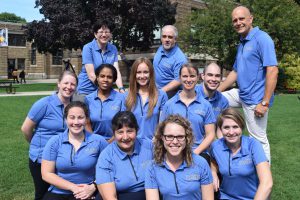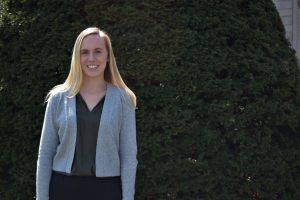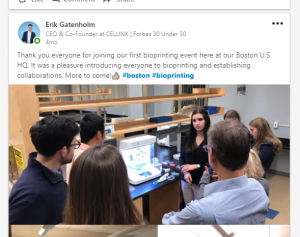 By: Lauren Creamer
By: Lauren Creamer
I’m finding it more and more common these days that Wentworth students are thinking about education beyond their time at the Institute. Many students are considering graduate studies that involve some sort of research component (i.e. a PhD program would require research, dissertation, etc.). Like you would prepare for any other job after graduation, you will want to prepare for graduate-level academic research by… wait for it… doing academic research as an undergrad. This shows admissions representatives and department chairs that you are dedicated to the field and understand the commitment required of the program.
There are a few angles I suggest students consider when trying to identify a research experience that could count for co-op: Research Experience for Undergraduates, local area research hospitals, collaborating with faculty at Wentworth, or at a research institution (like The Jacobs Institute or WHOI).
Research Experience for Undergraduates, or REUs for short, are funded by the National Science Foundation, take place at universities across the nation, and span a number of academic disciplines. I see applied math and engineering students take advantage of these opportunities at high levels. REUs almost exclusively take place over the summer, so they are best suited for majors with summer co-op (applied math, electromechanical engineering, architecture), or as the optional summer co-op. Each program has its own application process, and deadlines are usually several months before students would typically begin their co-op searches (think early January/February). Applicants will have to submit a personal statement, which your CO-OP + CAREER Advisor can review! The most important thing to remember about REUs: don’t just blindly apply to as many as you can. Be thoughtful about which programs best fit your skills and interests (and graduate school goals).
Pro Tip: Many REUs cover the cost of housing, provide a stipend, and sometimes cover travel costs.
For those interested in the medical field, finding a co-op at one of Boston’s many research hospitals is a fantastic idea. We have had students do co-ops at MGH, Brigham and Women’s, Boston Children’s, and Beth Israel Deaconess Medical Center, to name a few. Sometimes the careers pages on the websites of these hospitals will have formal intern postings (usually for summer), but in many cases, you can find the contact information for lab heads online. Most non-profits list employee contact information in a directory. It could also be found on the page of a particular lab or research group.
My advice to students seeking research in a hospital setting is this: narrow down your research topic to something a bit more specific (like “neuro-imaging research” or “pediatric cardiovascular devices”) and do a simple Google search of that phrase. You’ll turn up a listing of labs in the Boston area that you could potentially reach out to inquiring about a co-op. Talk with your CO-OP + CAREER Advisor on the best ways to conduct direct outreach. Students find their co-ops in this way all the time!
Pro Tip: Write a statement of interest (which isn’t quite like a cover letter) describing your interest in their research and how you would be a good fit for their lab. Focus more on the interesting bit. (Duh).
In the realm of non-profits, students should also consider free-standing research institutions. For example, Woods Hole Oceanographic Institute (aka WHOI) is a leader in the world of ocean science and policy. They cover a variety of research areas and they literally have a page where you can look up all the different labs (which you can then click into and find out who runs them).
WHOI hosts Wentworth students on co-op every year and the best way to find an opportunity is to reach out directly to the labs in which you are interested in conducting research.
Pro Tip: Sometimes these institutions have formal applications processes for co-ops/interns. Sometimes they don’t. I always recommend you CALL AND ASK. It won’t hurt to pick up the phone and inquire about the best method for application.
For those students that would prefer to stay a bit closer to home or just plain like working with one of their professors at Wentworth – many departments on-campus will support academic research for co-op. Of course, they would much prefer you went off-campus to get a new experience, but many students interested in pursuing graduate school have elected to stay on-campus to do research with a professor.
Pro Tip: You don’t need to make this experience a co-op. You can do it on your own during any academic semester! But if you want to make it a co-op, use this handout to inquire about and secure opportunities at Wentworth.
Whatever you choose, undergraduate research can be a highly rewarding experience. It is so important for graduate school (master’s programs with thesis-based requirements and PhD programs). And, if you can get a publication out of your research experience, well that is just icing on the cake.



